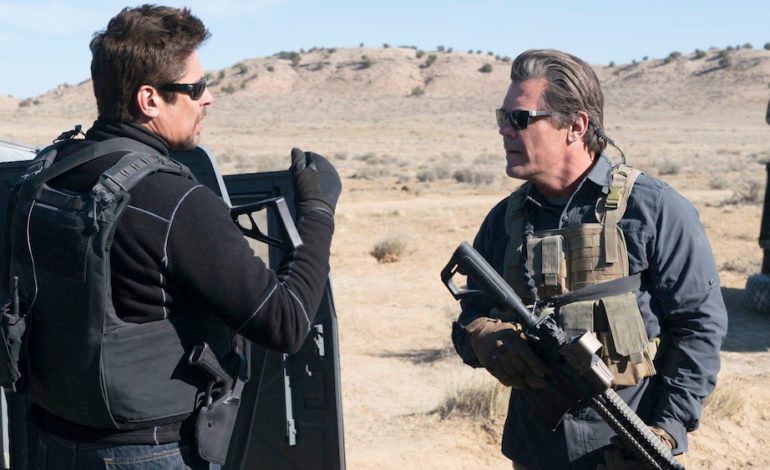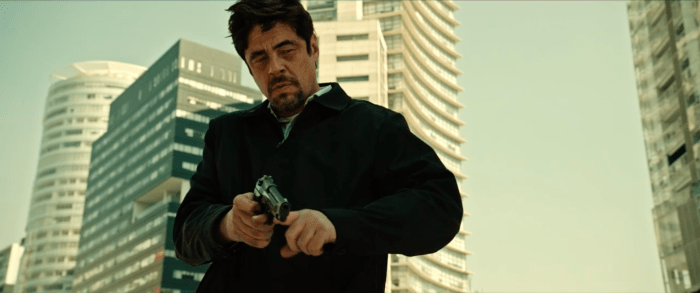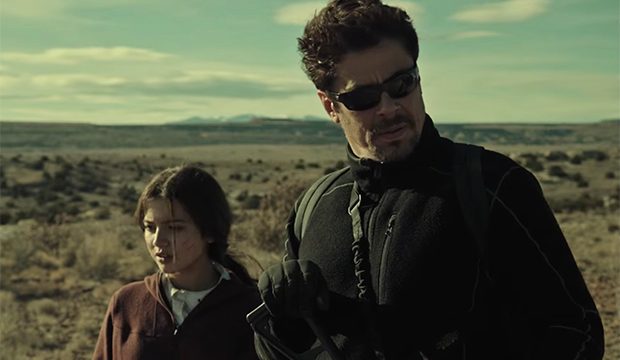

“Did Sicario really need a sequel?” was my first thought after hearing about Day of the Soldado. Despite being one of the best films of 2015, I always saw Sicario as a self-contained product that begun and ended with its thematic statement. Not only did the film showcase the devastation caused by drug cartels, but it also critiqued the dark underside of America’s War on Drugs. If the tactics used to undermine these cartels are just as dirty as their own trafficking system, then what makes us the good guys?
That’s Sicario: Day of the Soldado’s first noticeable obstacle- continuing its narrative without Emily Blunt or former director Denis Villeneuve. The answer it reached was to focus on the two male characters involved in demolishing these operations altogether: CIA agent Matt Graver (Josh Brolin) and Sicario Alejandro Gillick (Benicio del Toro). Having been tasked by the DHS to deal with cartels suspected of providing transportation for terrorists, Graver recruits Gillick to turn the organizations against one another, start a proxy war out of nowhere, and make it look like the United States was never involved.


At first, their “war” goes rather smoothly, with Gillick and Graver making anonymous “statements” disguised as messages from rival cartels. This involves kidnapping Isabela Reyes (Isabela Moner), the child of a major kingpin, and then presenting themselves as her rescuers. However, this plan falls apart when, en route to “return” Isabela, Graver’s team is ambushed across the border. This puts him and Gillick on opposite sides of the conflict, as each is forced to contend with the other’s personal agenda.
This narrative, while moderately successful as an action-thriller, feels rather uneven when compared alongside the original Sicario. While military action existed in that film, it was always treated as an extension of the moral debate regarding America’s militant approach to ending the Drug War. Instead of focusing on an outsider the darker nature of law enforcement gone rogue, the protagonists are now those who embody the “whatever it takes” mentality. The result is a movie where macho action is treated as a solution to violence and corruption, rather than an ambiguous attempt to quell it.
This does not mean that the action, nor the characters, fail. On the contrary, both Brolin and del Toro are fantastic in their reprised roles, with del Toro in particular continuing to steal the show. Despite playing Alejandro as an enigma, his verbal expressions and subtle past references make the character’s past intriguing. Brolin also presents himself as the tough government agent-type unafraid to get results, as evident by his opening scene involving an interrogation suspect and a drone. These characters are not good guys and care little about that title so long as they finish the mission.


This level of brutality is replicated during the actions scenes, all of which are well executed but not necessarily “fun.” Sicario has never portrayed violence the way a summer blockbuster does and, to director Stefano Sollima’s credit, that vibe is maintained here. The standout is the aforementioned shootout between Graver’s men and cartel-paid Mexican policemen on an abandoned roadway, as it keeps the action self-contained but also intense. These moments are brutal and dynamic, but the response is more discomforting than fist pumping.
However, Day of the Soldado’s juxtaposition between intriguing characters and a plot that fizzles by its third act highlight a desire to really be like the first Sicario. The cinematography is actively trying to replicate Denis Villeneuve’s breathtaking shots of the Mexican landscape and, while good, never rise above that. Even the subplot of Miguel, a boy whose interactions with the cartel eventually fit into the main storyline, mirror what 2015’s Sicario did with one of its side characters. Everything is here, but it feels like the film is going through the motions rather than make its own decisions.
Verdict: 3 out of 5
There are good moments sprinkled throughout Sicario: Day of the Soldado narrative and, if it means seeing more Alejandro Gillick, I’d be lying if I said a third film didn’t sound appealing. However, when the final takeaway of this movie is that it’s just the set-up for another movie, you can’t help but wonder if the first film’s harrowing message feels diluted. Like Sicario’s depiction of the Drug War, Hollywood’s infatuation with movie sequels seems never-ending.
